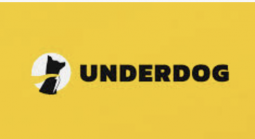Google Lifts Gambling Ad Restrictions in UK

Friday it was announced that Google, the world's largest search engine, will allow gambling ads to display alongside organic results within the United Kingdom. Google had initially banned such ads in 2007.
"Online Poker" is the most searched for term on the Internet, beating out "Sex" two years ago.
Already, the likes of Ladbrokes and Victor Chandler have begun to see their ads appear on the Google website when typing in online gambling related search terms.
The ads will not appear when the "family safe" tool is set on one's computer, however.
For several years now, Google has not permitted similar ads from showing within the US, due mostly to draconian laws.
"We see this as a positive move," Duncan Parry, chief solutions officer at digital marketing agency Steak Group noted in a statement e-mailed to ClickZ News. You only have to look at Google Trends for gambling keywords to know how much UK consumers want to gamble online and are using search engines to find gambling sites."
He went on to suggest, however, that the opening up of search as a major gambling-related ad medium could have a detrimental effect on other online channels. "It will be interesting to see how the eco-system of gambling brands, guide sites, affiliates and other channels that feed customers through to Web sites is affected," he said.
----
Payton O'Brien, Gambling911.com Senior Editor













